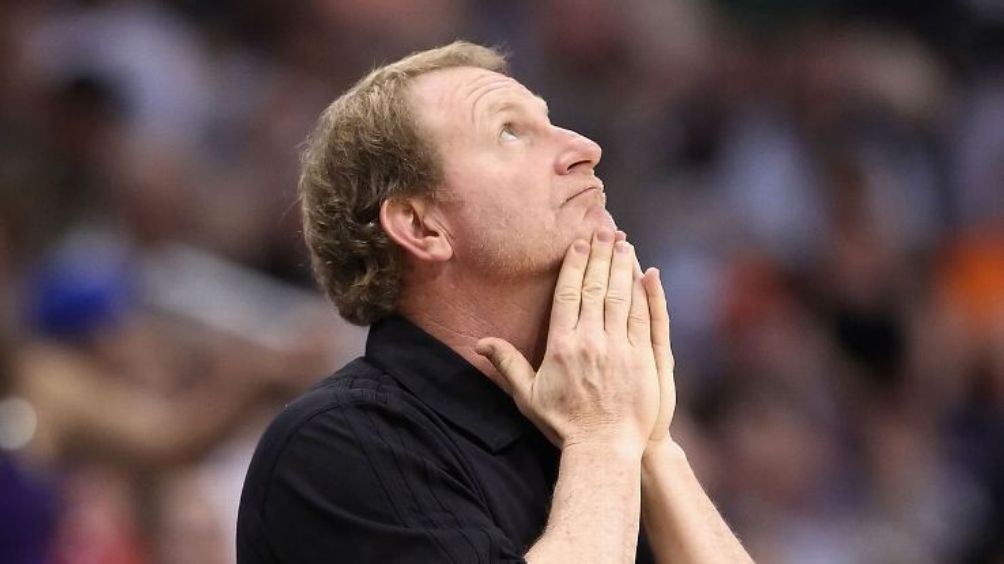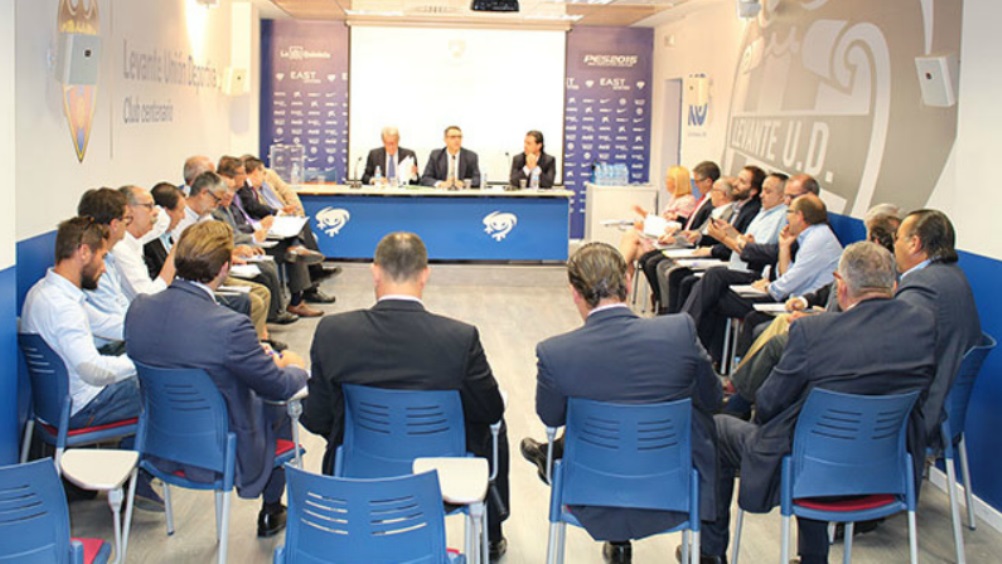
29 Jul Why did Levante UD reject Robert Sarver?
Summer in Valencia seems to attract the heat, tremendous levels of doziness and millionaires interested in buying our most important football clubs. 2014 was the year of Peter Lim, as the Singaporean businessman prevailed and acquired the ownership of Valencia CF in one of the most bizarre and ultimately muddled buyout processes ever seen in the football world. Two months ago, entrepreneur Robert Sarver (owner of the NBA’s Phoenix Suns) was the one to strut into the city with a pretty interesting offer to buy Levante UD, the city’s oldest club (founded in 1909) and the underdog for most part of its history.
A quick reminder of Levante’s current state of affairs: after a calamitous management and relegation to Segunda División, the club filed for bankruptcy in summer 2008 as it couldn’t endure such a big financial burden. Players were fired, the structure was thinned down and three external managers were put in charge, with the aim of rebuilding the squad from scratch (all newcomers were signed for free) and steadily repaying their debtors, which were owed approximately €60 million.
Surprisingly, the team performed remarkably on the 2008-2009 season, and exploded the next year, conquering one of the three top spots that allowed Levante to return to Primera División. It was one of the biggest feats in the club’s history, achieved precisely on their 100th anniversary. Two years later, Levante would shock the world by grabbing the top spot in La Liga for a couple of weeks and securing a place in the UEFA Europa League, the best performance to date of this modest, humble club. While they excelled inside the pitch, the work produced in the management area allowed the selling of players for a high price (strikers Caicedo and Arouna Koné, and goalkeeper Keylor Navas are the best examples) and, consequently, reducing the club’s debt until €34 million in summer 2015. It’s true that performance in the 2014-2015 season was lackluster (a meager 37 points, barely enough to stay in Primera), but few people expected things to change in the short-term. After all, Levante fans are used to suffering, sweat and tears.
Enter Robert Sarver. The Tucson-born millionaire got his interest piqued by the possibilities that owning the Valencian club would have amongst his business portfolio, as well as the investing opportunities in the Mediterranean city and the new TV rights deal that is being negotiating within La Liga squads. He had tried before with Madrid-based Getafe, but the deal was promptly shot down. He contacted Levante’s president, Quico Catalan (appointed in 2009 after the three legal managers had sorted out the payment schedule the club had to follow) in May, and his interest became public in June. Levante’s board of directors answered his first approach with caution and a well-known mantra: the club had no need of selling its majority of shares (70%), property of the club’s Foundation (Fundación LUD Cent Anys). Sarver countered with a formal offer: €56 million, of which €6 million would be used to buy the 70% of shared and €50 would be invested in paying back the remaining debt (€34 million), improving the Ciutat de Valencia stadium and signing important players that would strengthen the squad.
As expected, soon comparisons started taking over the football discussions within the city’s fans, who compared both the Valencia and Levante buyout processes when, if we are honest, they can’t be compared at all. Peter Lim got the upper hand in a jumbled scenery of half-truths, pressure exerted by the banks, the coward antics of the Valencian government and institutions and several other offers that, after a public scrutiny, wouldn’t hold up. Valencia CF had to be sold. There was no other alternative. Period. In Levante’s case, there was no need to sell, though obviously an investment as important as Sarver’s could’ve changed the short, middle and long-term aims of a club whose survival each year depends exclusively on its skill to obtain those precious 42 points that allow them to stay one more season within the football elite of our country.
Therefore, a decision had to be made. The first box to be checked lied within the Fundación Cent Anys, who considered Sarver’s offer “interesting”. The second OK had to be secured from all of its members: 33 of them would vote, and two-thirds had to approve the deal. Finally, if all of these requirements were met, low-profile shareholders (hundreds of fans and businesses who sum up the remaining 30% of the club’s ownership) would have voted if they wanted the deal to be made or not.

This final step will never take place, as the offer was refused last Tuesday in a surprising twist. Fourteen members of the Fundación voted ‘yes’, thirteen voted ‘no’ and there were two abstentions. All in all, not enough support to see through the deal. Sarver’s offer has been refused and Levante won’t sell its ownership. Though this does come out of the left field, it can be easily explained by the particular idiosyncrasy of the club’s fans, eager to put as much effort in the table as possible and who relish their role as the city’s underdog. Levante’s fans are much less than Valencia’s, quantity-wise. But they don’t care. They are a minority, and they feel comfortable with it. This down-to-earth way of thinking could be one of the factors to explain the refusal. The city’s government and institutions, once again, acted poorly by giving up their right to vote in the final recount. There have been several arguments between members of the Fundación, with nasty rebukes and finger-pointing after the downfall. Not an uplifting aftermath, indeed.
Will Sarver counter-offer in the future? You never know. The Arizonan millionaire seemed to have persuaded everyone with his proposal, and may have no intention of insisting after being rejected. Levante’s president, Quico Catalan, explained the new scenario in a press conference: “Voting ‘yes’ was the easy way out, but my grandfather taught me that another Levante was possible. Levante’s ownership can’t be sold due to fear of relegation. That would be a coward gesture, and I’m not a coward. Sarver’s offer was very solid, it offered many guarantees, but it wasn’t enough. We’ve shown that we can build a solid project without money”, he said in a passionate speech. Catalan, obviously, had voted ‘no’ to Sarver… though he had changed his mind in the last second, as he commanded the process and talked positively of the deal weeks before, persuading other important members of the Board and many fans that selling the club was good. Meanwhile, the Fundación’s president, Jose Manuel Fuertes, had voted ‘yes’; he never changed his mind. Two different points of view that represented the feelings of thousands of ‘levantinistas’, each of them with their own opinion in this issue.
Two months later, Robert Sarver leaves Valencia with empty hands. And Levante will remain one of the scrappiest, most humble squads in La Liga. At least, until they have paid back all of their debt… or another millionaire set its sights in this old-fashioned Valencian club.

Sin comentarios